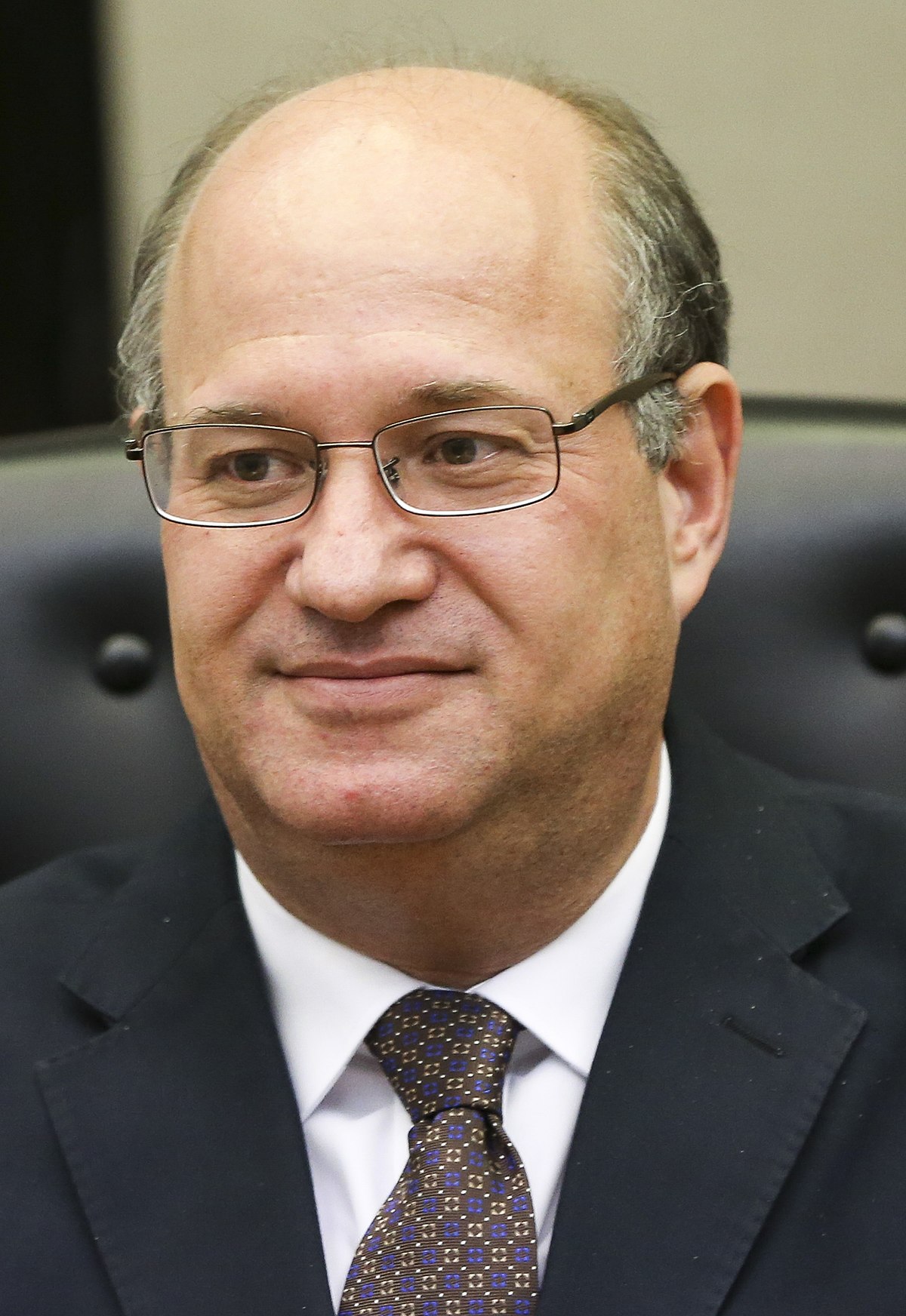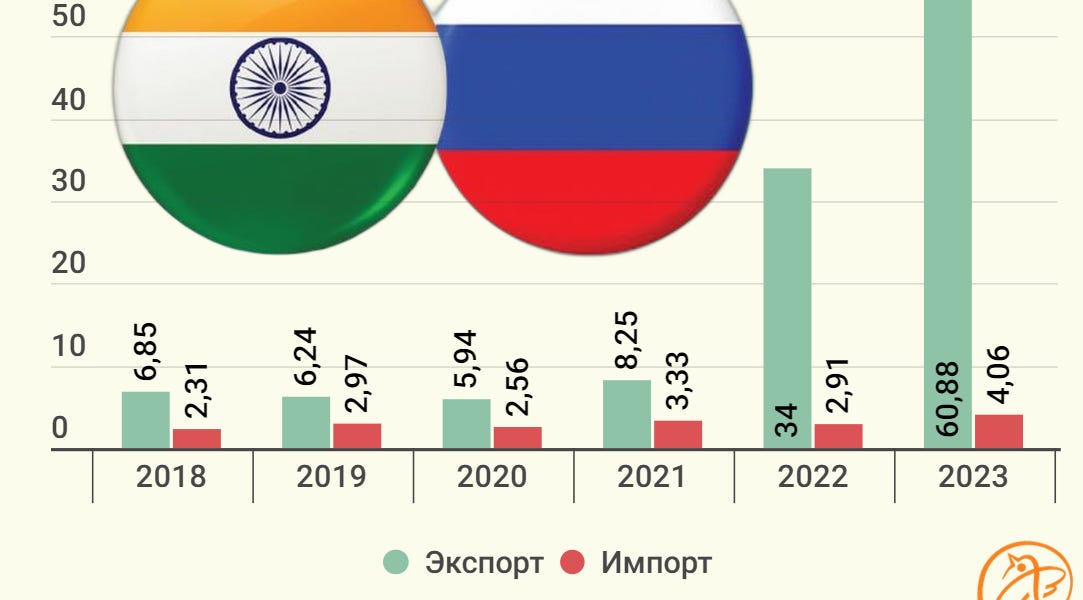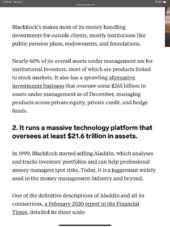You are using an out of date browser. It may not display this or other websites correctly.
You should upgrade or use an alternative browser.
You should upgrade or use an alternative browser.
Climate change, COVID, and other things...
- Thread starter SenileOldGit
- Start date
Checkthisout
Solar Wizard
- Joined
- Nov 14, 2021
- Messages
- 4,810
Current members of BIS Management
Agustín Carstens
General Manager
Andréa M Maechler
Deputy General Manager
Monica Ellis
Secretary General and Head of General Secretariat
Peter Zöllner
Head of Banking Department
Claudio Borio
Head of Monetary and Economic Department
Hyun Song Shin
Economic Adviser and Head of Research
Cecilia Skingsley
Head of BIS Innovation Hub
Diego Devos
General Counsel
Luis Bengoechea
Deputy Head of Banking Department
Bertrand Legros
Deputy Secretary General
Gaston Gelos
Deputy Head of Monetary and Economic Department
Fernando Restoy
Chair, Financial Stability Institute
Jens Ulrich
Head of Risk Management
Tao Zhang
Chief Representative for Asia and the Pacific
Alexandre Tombini
Chief Representative for the Americas
Tombini is no longer part of that organization and was replaced by this guy

Ilan Goldfajn - Wikipedia
Checkthisout
Solar Wizard
- Joined
- Nov 14, 2021
- Messages
- 4,810
Wow you are capable of doing internet research? Bravo! Bravo!!!!
911 Truthers think the airplanes should have crumpled-up against the side of the WTC's and fallen to the ground.
yes, lets change subject (LOL)
This is how the game is played (And they are laughing at you)

 edwardslavsquat.substack.com
edwardslavsquat.substack.com
This is how the game is played (And they are laughing at you)

How much delicious sanctioned Russian crude can India sell to the Satanic West?
We report you decide
Checkthisout
Solar Wizard
- Joined
- Nov 14, 2021
- Messages
- 4,810
yes, lets change subject (LOL)
This is how the game is played (And they are laughing at you)

How much delicious sanctioned Russian crude can India sell to the Satanic West?
We report you decideedwardslavsquat.substack.com
Why do you think that I think they weren't laughing at me?
I'm bored with your "I'm the smartest one here" ruse.
Would you care to join me for a dinner consisting of lead paint chips and paste...your favorite childhood meal?
ksmithaz1
Solar / EV Junkie
Let's not devolve. Most of these outfits do what they do because the are after the dollar/ruble/shekel/whatever. The next great crises opens them up to lawsuits if some idiot that works for them gets sick/dies/whatever so they take the path of least resistance, and follow along. The sheeple put up with it because they want the job/products/whatever. It takes courage to question. Following along listening to rhetoric and propaganda is easy.
ksmithaz1
Solar / EV Junkie
Sometimes, nothing at all is better than not enough!
Let's not devolve. Most of these outfits do what they do because the are after the dollar/ruble/shekel/whatever. The next great crises opens them up to lawsuits if some idiot that works for them gets sick/dies/whatever so they take the path of least resistance, and follow along. The sheeple put up with it because they want the job/products/whatever. It takes courage to question. Following along listening to rhetoric and propaganda is easy.
I used to think that too.
But you have to realize that these people already have all the money in the world, as they control the printing press. After you have trillions, do you think acquisition of more trillions matter? It has long ago became about "playing god" for these people, which is why all this crazy shit started to happen in the last few decades.
If this was only about money, common sense would win, because common sense is the best for profits.
ksmithaz1
Solar / EV Junkie
It's mostly about the money. That's how we keep score. The God complex is about steering people to make sure you get closer to the high score than those around you. Jealousy and avarice, you know the "bad stuff" they talk about in that awful book on those evil commandments. Being dysfunction is really good, no, really, . . . What could possibly go wrong with this attitude?I used to think that too.
But you have to realize that these people already have all the money in the world, as they control the printing press. After you have trillions, do you think acquisition of more trillions matter? It has long ago became about "playing god" for these people, which is why all this crazy shit started to happen in the last few decades.
If this was only about money, common sense would win, because common sense is the best for profits.
It's mostly about the money. That's how we keep score. The God complex is about steering people to make sure you get closer to the high score than those around you. Jealousy and avarice, you know the "bad stuff" they talk about in that awful book on those evil commandments. Being dysfunction is really good, no, really, . . . What could possibly go wrong with this attitude?
You are dealing with psychopaths.
Post in thread 'Climate change, COVID, and other things...'
https://diysolarforum.com/threads/climate-change-covid-and-other-things.79976/post-1028717
ksmithaz1
Solar / EV Junkie
WSJ Just posted an editorial Tuesday, ... Covid lockdowns and masks accomplished nothing, they used (as I keep saying) raw death numbers rather than trying to use categories compares various countries by response . . .
Sometimes the best thing to do is nothing at all.
Sometimes the best thing to do is nothing at all.
Checkthisout
Solar Wizard
- Joined
- Nov 14, 2021
- Messages
- 4,810
WSJ Just posted an editorial Tuesday, ... Covid lockdowns and masks accomplished nothing, they used (as I keep saying) raw death numbers rather than trying to use categories compares various countries by response . . .
Sometimes the best thing to do is nothing at all.
Even Fauci knew this from the beginning as did all medical science.
There are books written decades ago demonstrating as such.
Fauci changed his tune, remember?
Fauci is a friggin criminal
Fauci admits herd immunity

 videocast.nih.gov
videocast.nih.gov
He is a filthy shit bag. I’m sure They messed around 1918 Spanish flu and made some bad shit that got loose.
Most likely we made covid-19 here in USA since we had most reported deaths or the country that made it had cure - correct vaccine.
Post in thread 'Do We Need a Control Group?'
https://diysolarforum.com/threads/do-we-need-a-control-group.32289/post-1041393
We will probably never know…for 60 years or so and most ppl that care will be gone.
Fauci admits herd immunity

Demystifying Medicine 2021 - COVID-19 and Influenza
Demystifying Medicine <br><br> Dr. Fauci will discuss the status of the COVID-19 pandemic; Dr. Taubenberger will discuss the status of the emerging influenza season, as well as the 1918–1919 flu. <br><br> While COVID-19 vaccines are now being distributed, the worse of the pandemic in terms of...
He is a filthy shit bag. I’m sure They messed around 1918 Spanish flu and made some bad shit that got loose.
Most likely we made covid-19 here in USA since we had most reported deaths or the country that made it had cure - correct vaccine.
Post in thread 'Do We Need a Control Group?'
https://diysolarforum.com/threads/do-we-need-a-control-group.32289/post-1041393
We will probably never know…for 60 years or so and most ppl that care will be gone.
42OhmsPA
What's in a title?
Wow, the lyrics and the world today.
Remember when the 5 democratic governors were putting Covid patients in retirement homes and exposing the sick elderly in there to covid?
Michigan Governor Whitmer was responsible for this assault… she allowed this animal infected with coviid to be in the retirement home and thus he assaulted a permanent elderly resident. There were putting all kinds of ppl in retirement homes that should not been in them.
This animal …. Beat and probably Killed this old man which died 2 weeks later.
“‘’’
Nursing home staff raced in to help Bledsoe, Hayden said had fallen out of his bed, police later said. Hayden was arrested a week later, after police received several calls from citizens who saw the video on social media. Hayden, who police said had “set up his cell phone” in the room, had posted videos of the attack on social media. He was also accused of stealing Bledsoe’s credit cards.
Joely Pointer an employee at the nursing home, said in January, 2021, that Bledsoe was left dazed after the attack, which left him with several broken ribs, fingers, and a broken jaw. “He had a very large contusion to his head,” she said. “There was blood. He was very confused and he could not give me a statement as to what happened.”
Michigan Gov. Gretchen Whitmer, like former New York Gov. Andrew Cuomo and governors in New Jersey and Pennsylvania sent COVID patients to nursing homes during the early stages of the pandemic. The policy has been blamed for deadly infections of elderly people in those states.
Hayden is now confined in a Kalamazoo psychiatric hospital.
The Bledsoe family is suing the nursing home and has hired prominent Michigan attorney Jeffrey Fieger.
‘’’’’’’’
The animal - murderer walked because was not capable of standing trial after robbing and beating the man to death in video. The old man took 2weeks to die. Michigan governor Whitmer should be charged for putting a 20year old mentally ill animal in with a 75 year old ARMY Veteran which was the victim of robbery and beating that ended his life. The criminal was never prosecuted and again ALL charges dropped.
Video

 www.bitchute.com
www.bitchute.com
Michigan Governor Whitmer was responsible for this assault… she allowed this animal infected with coviid to be in the retirement home and thus he assaulted a permanent elderly resident. There were putting all kinds of ppl in retirement homes that should not been in them.
This animal …. Beat and probably Killed this old man which died 2 weeks later.
“‘’’
Nursing home staff raced in to help Bledsoe, Hayden said had fallen out of his bed, police later said. Hayden was arrested a week later, after police received several calls from citizens who saw the video on social media. Hayden, who police said had “set up his cell phone” in the room, had posted videos of the attack on social media. He was also accused of stealing Bledsoe’s credit cards.
Joely Pointer an employee at the nursing home, said in January, 2021, that Bledsoe was left dazed after the attack, which left him with several broken ribs, fingers, and a broken jaw. “He had a very large contusion to his head,” she said. “There was blood. He was very confused and he could not give me a statement as to what happened.”
Michigan Gov. Gretchen Whitmer, like former New York Gov. Andrew Cuomo and governors in New Jersey and Pennsylvania sent COVID patients to nursing homes during the early stages of the pandemic. The policy has been blamed for deadly infections of elderly people in those states.
Hayden is now confined in a Kalamazoo psychiatric hospital.
The Bledsoe family is suing the nursing home and has hired prominent Michigan attorney Jeffrey Fieger.
‘’’’’’’’
The animal - murderer walked because was not capable of standing trial after robbing and beating the man to death in video. The old man took 2weeks to die. Michigan governor Whitmer should be charged for putting a 20year old mentally ill animal in with a 75 year old ARMY Veteran which was the victim of robbery and beating that ended his life. The criminal was never prosecuted and again ALL charges dropped.
Video

Criminal Charges Against Jaden Hayden Dropped
The court claims that since he suffers from mental illness that he is not criminally responsible for beating elderly nursing home patients to death. He attacked elderly patients in their sleep - https://www.bitchute.com/video/4QlRshpfMreW/ Jaden …
The killers’ facebook captured before Police deleted it. They protected him. Ever wonder why police rush in and delete the facebook accounts?
In this case no doubt to protect MI Governor Whitmer which put this Covid infected animal in the retirement home
Interesting facebook comments.

 www.bitchute.com
www.bitchute.com

Freed
In this case no doubt to protect MI Governor Whitmer which put this Covid infected animal in the retirement home
Interesting facebook comments.

Jaden Hayden Facebook Timeline Before They Deleted It.
Where you can find me is below. Any support is greatly appreciated. Please like/subscribe. YouTube/Bitchute/Twitch/Mixer/DLive/DTube/Steem/Minds : Dick Toles or DickToles Merch: teespring.com/stores/we-the-people-88 Paypal: paypal.me/dicktol…

Freed
Hey look this criminal animal not only beat an old man that resulted in death but video - himself beating an old white woman. 100% racially motivated both times. Look at previous facebook video.
Smile …. Remember when you get old maybe they will beat you up and sex too….steal money and you die “because fell out of your bed”. Oh the joy…of living out your final days in peace and respect. Not going to happen.
White woman getting beat up by same animal. Racially motivated. Walks.
MI Governor Whitmer put this known violent criminal in elderly retirement home because it was infected with covid. Intended to kill with sickness instead beat white ppl in racial motivated hate caught on his own videos.

 www.bitchute.com
www.bitchute.com
So when are the 5 democrat governors that put covid sick in retirement homes going to be tried as mass murderers? MI Governor Whitmer is guilty as shown…. Put a known criminal violent animal in with elderly whites that could not defend themselves. I think that animal should be locked in cage with Governor Whitmer in a Sharia Law judgement court case. Video the court ordered sentence for families of the victims. It would be fitting justice. No?

This is going on all the time. Most ppl have enough sense not to film themselves being a murdering criminal.
Just think all the news papers stated these video events were ‘’ALLEGED.’’ Words.
Words.
Smile …. Remember when you get old maybe they will beat you up and sex too….steal money and you die “because fell out of your bed”. Oh the joy…of living out your final days in peace and respect. Not going to happen.
White woman getting beat up by same animal. Racially motivated. Walks.
MI Governor Whitmer put this known violent criminal in elderly retirement home because it was infected with covid. Intended to kill with sickness instead beat white ppl in racial motivated hate caught on his own videos.

Jaden Haydon beating elderly white woman
https://www.facebook.com/people/Jadon-Hayden/100010368480735 Update: Supposedly he's been arrested.
So when are the 5 democrat governors that put covid sick in retirement homes going to be tried as mass murderers? MI Governor Whitmer is guilty as shown…. Put a known criminal violent animal in with elderly whites that could not defend themselves. I think that animal should be locked in cage with Governor Whitmer in a Sharia Law judgement court case. Video the court ordered sentence for families of the victims. It would be fitting justice. No?

This is going on all the time. Most ppl have enough sense not to film themselves being a murdering criminal.
Just think all the news papers stated these video events were ‘’ALLEGED.’’
Hedges
I See Electromagnetic Fields!
- Joined
- Mar 28, 2020
- Messages
- 20,682
Looks very bad. Wish our government would let us protect ourselves, rather than forcing such situations on us and the most vulnerable.
"Alleged"? In these days of "generative AI", you really can't believe your own lying eyes.
One reporter hired someone to make a video of him committing a crime (for research purposes.) His face was transplanted onto video of an actual attack, and his voice spoke in a language he didn't know.
"Alleged"? In these days of "generative AI", you really can't believe your own lying eyes.
One reporter hired someone to make a video of him committing a crime (for research purposes.) His face was transplanted onto video of an actual attack, and his voice spoke in a language he didn't know.



















